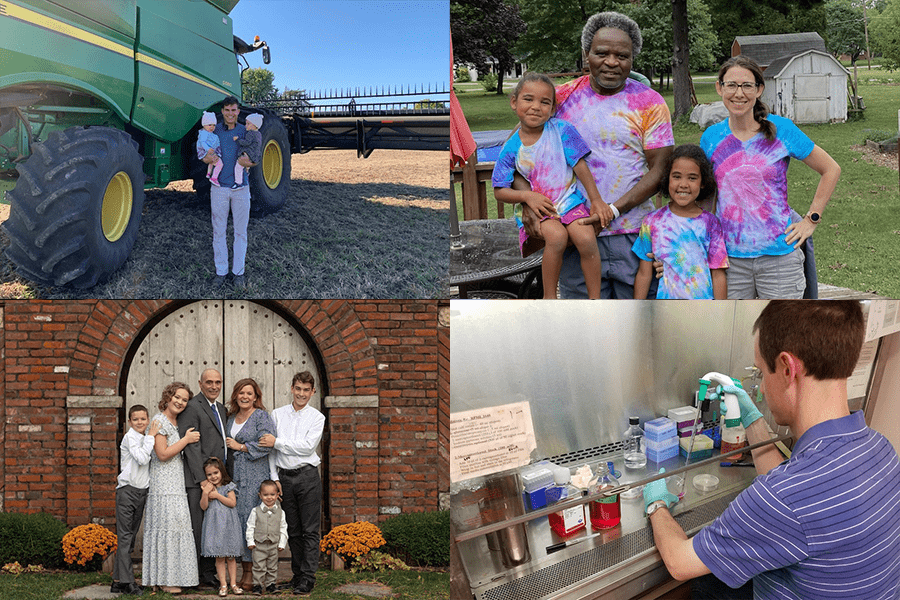Sarah Hopfer: Age 38
IU School of Medicine campus: Terre Haute (MS4)
Former career: Humanities instructor/Bartender
“I’ve been telling folks that, in retrospect, medicine has seemed to be a parallel path in my life from childhood and that the actual diversion might have been my nine-year foray into the humanities,” said Hopfer, who is set to graduate from medical school this May.
She earned bachelor’s and master’s degrees in English, logged another 65 hours (five years) toward a PhD in English and taught first-year analytical writing at IU Bloomington before awakening to her true calling: emergency medicine. Hopfer grew up watching M*A*S*H* (Mobile Army Surgical Hospital) and “Rescue 911” on TV. Before grad school, she was an EMT for three years. During grad school, she paid the bills by bartending at a cocktail bar and restaurant.
 “When people would get sick or hurt in the restaurant while I was on shift, I would be there to help until EMS arrived. I started realizing that it was in those moments that I felt most alive and most like myself—like I was using all of my experiences and skills and knowledge to do something good in the world,” Hopfer said, “I didn’t want to be an old woman someday saying to myself, ‘I bet I could have been a good doctor,’ but never having tried.”
“When people would get sick or hurt in the restaurant while I was on shift, I would be there to help until EMS arrived. I started realizing that it was in those moments that I felt most alive and most like myself—like I was using all of my experiences and skills and knowledge to do something good in the world,” Hopfer said, “I didn’t want to be an old woman someday saying to myself, ‘I bet I could have been a good doctor,’ but never having tried.”
Although her years of studying English and bartending might seem like wasted time, Hopfer sees it differently.
“Bartending taught me about teamwork, multitasking, flexibility, communication during high-intensity moments, situational awareness, and meeting people where they’re at,” she said. “My life in the humanities gave me the benefit of pedagogical training, experience introducing new adult learners to sometimes paradigm-changing ideas, helping people learn to express their thoughts and feelings clearly—all elements that are transferable to a patient encounter where people sometimes need a little help putting words to what they’re experiencing or need some guidance in learning about their condition and how to assimilate it into their self-concept.”

